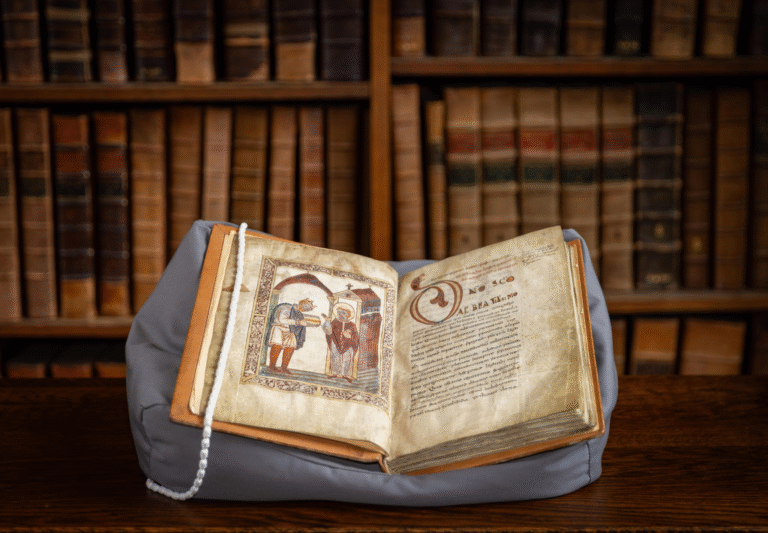How Ireland’s Parent-Centered School System Is Shaping Today’s U.S. School Choice Debates

Across the United States, conversations about school choice, curriculum transparency, and parental rights have grown louder, especially since the disruption caused by COVID-19. As families gained an unexpected front-row seat to their children’s education during the lockdown, many began questioning what was being taught and how much influence parents should have. This ongoing debate has pushed several states to expand voucher programs, tax credits, and other school-choice initiatives.
A recent study by Cornell College education professor Jill Heinrich takes a fresh approach to this national discussion by examining a lesser-known comparison point: Ireland’s education system. Her research explores why Ireland’s long-standing commitment to parental rights might help Americans understand why so many parents are urging policymakers for more school choice today.
Below is a clear, detailed, and friendly breakdown of all the specifics of the study, the history behind the Irish model, why it matters for the United States, and what issues policymakers need to keep in mind.
Understanding Why the Study Focuses on Ireland
Heinrich’s research, published in the International Journal of Comparative Education and Development, investigates what motivates modern American parents to demand more influence over their children’s schooling. Instead of framing the debate as a battle between angry parents and stubborn school boards, she looks to Ireland—a country with a completely different political and cultural background—to understand a fundamental principle: education as a parental right.
She traveled to Ireland three times, meeting with teachers, school administrators, and education leaders to better understand how the Irish system works. Even though Ireland’s schools differ greatly from those in the United States, the comparison offers insight into the emotional and cultural roots of the U.S. school-choice movement.
Ireland’s System Begins With History
To understand why parents in Ireland have so much authority, you have to look back to Ireland’s 1937 Constitution. When the Irish Republic was taking shape, the country was emerging from centuries of cultural suppression under British rule. The writers of the Constitution wanted to protect Irish culture, identity, and family autonomy.
Two core beliefs guided their approach to education:
- The state should fund education, but not directly run it.
- Parents’ rights come first in choosing the school and moral formation of their children.
This framework created a system where parents could select schools that aligned with their religious, moral, and cultural convictions—and this principle has remained deeply rooted in Irish society.
Even when legal battles or policy debates have forced changes over the years, the belief that families deserve meaningful school choice has remained non-negotiable for most Irish citizens.
The Role of Religion and “Ethos” in Irish Schools
One of the biggest differences between Ireland and the United States is the role religion plays in education.
In Ireland, churches and religious organizations can administer government-funded schools as long as they follow the national curriculum. This model is common; the majority of Irish primary schools operate under a religious patronage system. But because public funding supports these schools, parents can choose them without paying private-school tuition.
A key concept within Irish education is ethos—a school’s identity, values, and cultural environment. It’s not unusual for Irish people to talk casually about the ethos of a school, whether in conversation with friends or even in a taxi ride. Ethos is seen as an important part of a child’s upbringing, and parents take seriously the idea that schools should reinforce the values they hold most dear.
This emphasis helps explain why Irish parents view school choice as essential, not optional.
Connecting Ireland’s Experience to Today’s U.S. Debates
In the United States, school choice debates often revolve around topics like curriculum disagreements, political polarization, and concerns about teacher autonomy. But Heinrich’s study suggests that beneath the visible tension lies something deeper: a feeling among many parents that they have no voice in shaping the environment where their children spend most of their day.
She argues that many American parents who are pushing for choice believe the current system—funded by their property taxes—does not reflect their values and gives them little say in important decisions. Some feel ignored or dismissed by school boards, which can intensify frustration and lead to conflict.
On the other side, teachers and administrators may struggle to understand why their professional judgment is being questioned, creating a communication gap that feeds more misunderstanding.
Ireland’s model shows that when a system gives parents meaningful choice, it can reduce some of this tension. Parents feel respected, heard, and involved, not sidelined.
The Importance of Handling School Choice Carefully
Although Heinrich sees value in understanding Ireland’s approach, she also stresses caution. School-choice initiatives in the U.S. are young and expanding quickly, and if not designed thoughtfully, they can worsen educational inequality.
The risk is that some families may benefit from new forms of school choice while others—particularly those in lower-income or rural communities—have little access to the same opportunities. A system that increases choices on paper but leaves many families behind could undermine fairness and widen achievement gaps.
Policymakers must ensure that new programs do not unintentionally create barriers or deepen segregation by income, religion, or race. Choice should enhance access, not restrict it.
Additional Background: What Makes Ireland’s System Unique?
To give your readers a fuller understanding, here are a few extra details about Ireland that help explain why Heinrich chose it as a comparison:
Most Schools Are Religious, But Publicly Funded
A significant majority of Irish primary schools are affiliated with religious organizations. Despite this, they are state-funded and free for families. This structure allows for value-based education without the financial burden typical of private religious schools in the U.S.
Parents Are Legally Recognized as Primary Educators
Ireland’s Constitution explicitly calls parents the “primary educators” of their children. This shapes everything from school governance to curriculum expectations.
Ethos Is a Culturally Accepted Concept
The idea that a school has a distinctive ethos is widely understood and respected in Ireland. Parents expect to choose a school that aligns with their worldview, and school identity is central to this choice.
Policy Debates Still Happen
Even with a strong school-choice culture, Ireland continues to debate issues like equality, inclusivity, and the changing role of religion. This shows that no system is perfect—but it offers lessons in how cultural values shape educational expectations.
What U.S. Policymakers Can Learn From Ireland
Heinrich’s study ultimately offers insight—not a blueprint. The U.S. cannot replicate Ireland’s system directly, and the American educational landscape is far more diverse and decentralized. But the Irish example helps highlight several key ideas:
- Parents want meaningful involvement, not just theoretical rights.
- Values matter to families, not only academic performance.
- School identity influences parents’ trust in the system.
- Choice alone isn’t enough; equitable access must be ensured.
- Listening to parents can reduce conflict and strengthen school-community relationships.
By understanding the motivations behind parents’ concerns, the U.S. education system may find better ways to engage families and build trust—without creating or reinforcing inequality.
Research Paper Link
The primacy of parental rights: why Irish educational policy offers insight into US parents’ demands for school choice
https://www.emerald.com/insight/content/doi/10.1108/IJCED-11-2024-0111/full/html





